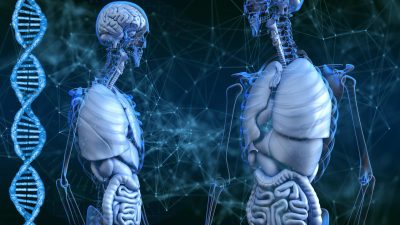From the surprising truth behind flamingo feathers to how snails use their teeth, these 30 incredible facts will make you see the world in a whole new light.
We humans are born with an innate curiosity—it’s what drives us to ask questions like, “Why is the sky blue?” or “Why do cats purr?” The questions we seek answers to can be both profound and quirky, sparking a sense of wonder about the world around us. And guess what? The internet is full of answers. From fascinating animal behaviours to the unexpected truths about everyday objects, the world is full of surprises. Prepare yourself for some jaw-dropping facts that will keep your curiosity alive.
Amazing Facts About Nature and Animals
- Flamingos Aren’t Born Pink
It’s a common misconception, but flamingos are actually born grey. Their iconic pink feathers develop later due to the natural pink dye found in their diet of blue-green algae and brine shrimp. Quite the colour transformation, right? - Tigers’ Stripes Are as Unique as Fingerprints
Stripes serve as camouflage for tigers, but did you know their stripes aren’t just on their fur? Tigers also have striped skin! Even more fascinating—no two tigers share the same stripe pattern, making each one as unique as a human fingerprint. - Snails Have Thousands of Sharp Teeth
Snails, which many people find harmless, actually have between 1,000 to 14,000 tiny sharp teeth. Now that’s something to think about before getting too close! - Leap Day Keeps Our Calendar on Track
The extra day every four years, known as Leap Day, isn’t just for an extra day off. It’s necessary to keep our calendar in sync with Earth’s orbit around the sun, compensating for the slight discrepancy in our yearly journey. - Square Watermelons Aren’t Edible
These bizarrely shaped fruits are cultivated in Japan to fit better in small fridges. However, to maintain their square shape, they’re picked before they ripen, making them inedible. A strange way to use a watermelon, right? - Sunsets on Mars Are Blue
While sunsets on Earth are typically orange or red, sunsets on Mars are blue. This is because of the fine dust in the Martian atmosphere, which scatters blue light more effectively than other colours. - Ants Form Super-Colonies
In some parts of the world, ants unite to form super-colonies. The largest of these spans three continents, stretching across Japan, California, and Europe, creating the largest animal society ever recorded! - Cats and Cucumbers: Why the Fear?
Ever wonder why cats seem terrified of cucumbers? It’s because of their snake-like shape, triggering an instinctual fear response. But don’t try this at home—scaring your cat can cause unnecessary stress.
Mind-Blowing Facts About Science and Technology
- The Slowest Light Ever Moved at 38 mph
The speed of light isn’t always constant. The slowest recorded speed was just 38 miles per hour when it travelled through ultra-cold atomic gas. That’s slower than a car on some highways! - BIC Pens Have Tiny Holes for a Reason
Ever wondered about those small holes in a BIC pen? They help balance the air pressure inside and out, allowing ink to flow smoothly toward the tip. - The Rubik’s Cube Took a Month to Solve
Erno Rubik, the creator of the famous Rubik’s Cube, took a whole month to solve it. Compare that to the record-solving time of 4.22 seconds in 2018! - Clouds Can Weigh Over 1 Million Pounds
Despite appearing light and fluffy, clouds can actually weigh more than 1 million pounds! This weight is calculated by measuring the cloud’s water density and multiplying it by the volume of the cloud. - Yellow Is the Easiest Colour to Spot
That’s why taxis and school buses are painted yellow. This colour is the most visible, even in low light conditions, making it easy to spot from a distance. - Your Brain Is 60% Fat
Your brain, the control centre of your body, is made up of around 60% fat! And when you’re awake, it generates more than 23 watts of power. Quite impressive for such a small organ!
Strange But True Facts About Everyday Life
- Manhole Covers Are Round for Practical Reasons
Ever wondered why manholes are round? It’s because they’re easier to manufacture, and they can resist the compression of the Earth better. Plus, workers can easily roll them to where they’re needed. - Marmite Was Once the Most Confiscated Item at Airports
The iconic spread became so popular that it was often confiscated by airport security. In response, the Marmite company created a special travel-size jar to keep their product on the shelves. - Superman Coins in Canada
In 2015, Canada released 350,000 coins featuring Superman, allowing you to pay with a superhero at the checkout. Now that’s a fun twist on currency! - Man’s Collar Was Once Detachable to Save on Laundry
In the past, men’s shirt collars were detachable, helping people save money on frequent laundry costs. After all, it’s the collar that gets dirty the quickest.
Surprising Facts About Earth and the Universe
- Earthquakes Can Shorten Your Day
Powerful earthquakes can affect the Earth’s rotation. For instance, the 2011 Japan earthquake shortened our day by 1.8 microseconds, while the 2004 Sumatra earthquake shaved off 6.8 microseconds. - You Don’t Sneeze in Your Sleep
It turns out your brain shuts down the sneeze reflex while you’re asleep, preventing you from sneezing in your sleep. Pretty useful when you’re in the middle of a dream! - The Eiffel Tower Leans in the Sun
The Eiffel Tower isn’t perfectly straight; it leans slightly away from the sun due to the metal expanding in the heat. The tower can shift by as much as 7 inches during hot weather. - 22. No Sneezing While You Sleep
You might wonder why you never sneeze in your sleep. It’s because your brain suppresses the reflex to protect you while you’re unconscious. This automatic shutdown ensures you don’t wake up with a sneeze in the middle of the night.
- 23. The Mystery of Yawning
Yawning is still a scientific puzzle. While it’s believed that yawning helps cool the brain, the reason it’s contagious remains a mystery. Whether it’s linked to social bonding or just a quirk of human nature, it’s a curious behaviour we all share.
- 24. Your Brain Is a Fatty Organ
Did you know your brain is the fattiest organ in your body? It’s made up of 60% fat! And while it may seem surprising, your brain is incredibly powerful, generating more than 23 watts of power when you’re awake.
- 25. X-ray Shoe Fitting Machines (A Thing of the Past)
From the 1920s to the 1970s, people used X-ray machines to measure shoe sizes in stores across the US, UK, Canada, and more. It wasn’t until later that the dangerous effects of radiation were realised, and the practice was discontinued.
- 26. Earthquakes Can Alter the Earth’s Spin
Major earthquakes can actually affect the Earth’s rotation! For example, the 2011 Japan earthquake shortened our day by 1.8 microseconds, and the 2004 Sumatra earthquake shaved off 6.8 microseconds. These shifts highlight how powerful these natural disasters are.
- 27. Why Yellow Is Easy to Spot
Yellow is the most visible colour to the human eye, especially in low light. That’s why taxis and school buses are painted yellow. It ensures they are noticed quickly, whether in daylight or the dark of night.
- 28. The Eiffel Tower Isn’t Perfectly Straight
The Eiffel Tower, that iconic Paris landmark, is not perfectly straight. The metal structure expands and contracts with temperature, causing it to lean slightly away from the sun. During hot weather, the tower can shift by up to 7 inches!
- 29. How Cats Purr (It Starts in the Brain!)
A cat’s purr doesn’t originate from its throat but from its brain. The brain sends signals to the muscles in the throat, causing them to vibrate 25 to 150 times per second. Cats purr for different reasons, such as feeling happy, healing, or even when they’re stressed.
- 30. Super-Social Ant Colonies
Ants are far more social than you might have thought. Some colonies unite to form super-colonies. In Japan, one super-colony contains 306 million worker ants and almost 1 million queen ants! Even more impressively, super-colonies sometimes join forces to create mega-colonies, with billions of ants spread across continents.




